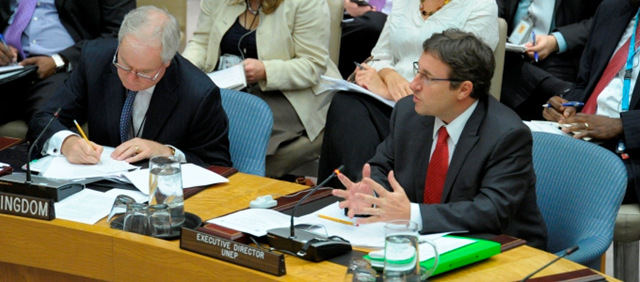U.N. deadlock on addressing climate change
By Neil MacFARQUHAR
20 July 2011 UNITED NATIONS — The persistent inability of the United Nations to forge international consensus on climate change issues was on display Wednesday, as Security Council members disagreed over whether they should address possible instability provoked by problems like rising sea levels or competition over water resources. Western powers like the United States argued that the potential effects of climate change, including the mass migrations of populations, made it a crucial issue in terms of global peace and security. Russia and China, backed by much of the developing world, rejected the notion that the issue even belonged on the Security Council agenda. With the major powers again at loggerheads, President Marcus Stephen of Nauru traveled the nearly 8,000 miles from his tiny Pacific island state to plead for action. Speaking on behalf of some 14 island states vulnerable to disappearing or at least losing significant territory to rising sea levels, Mr. Stephen mused aloud about how the debate might differ if larger countries were affected. “What if the pollution coming from our island nations was threatening the very existence of the major emitters?” he said. “What would be the nature of today’s debate under those circumstances?” […] Achim Steiner, the head of the United Nations Environment Program, noted that 145 countries rely on water from rivers that cross borders, with tension escalating among states over control of them as demand starts to outstrip supply. Despite such pleas, the debate, organized by Germany as this month’s council president, broke down along the same basic fault lines as the first such discussion four years ago. Much of the argument was about bureaucratic prerogatives. (President Stephen of Nauru said he wished council members were more concerned about encroaching water than encroachments on bureaucratic turf.) […] The American ambassador, Susan E. Rice, lashed out at other members for not addressing the problem. “This is more than disappointing,” she said. “It’s pathetic.” […]
